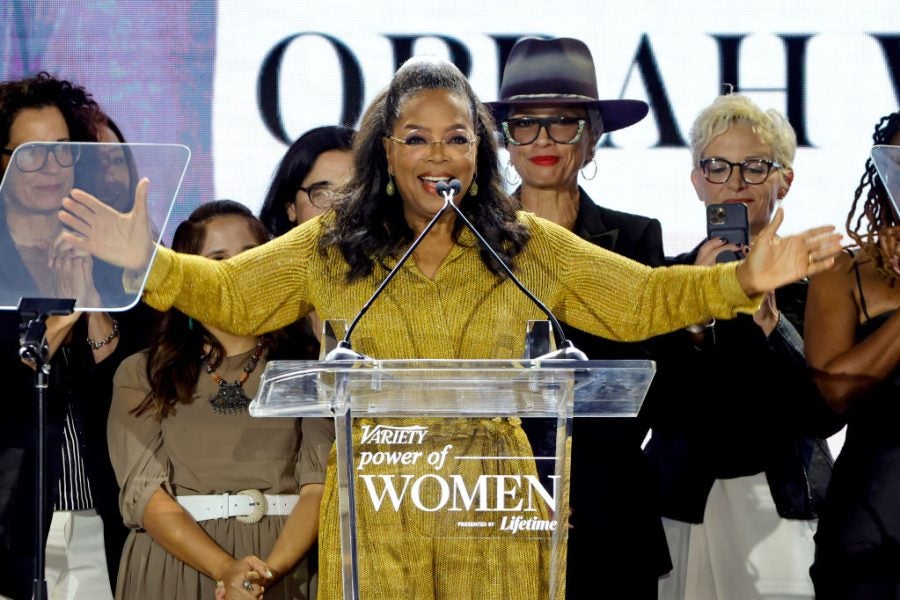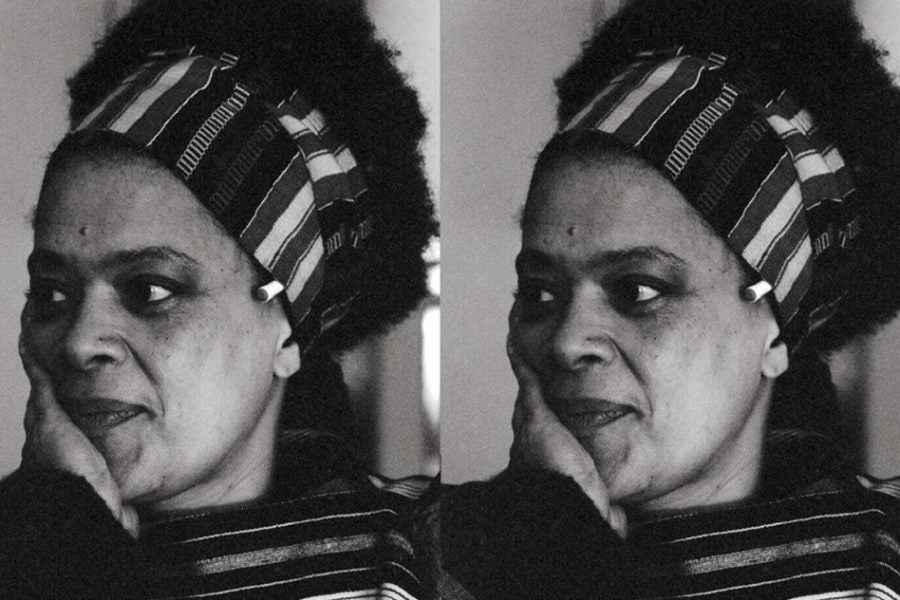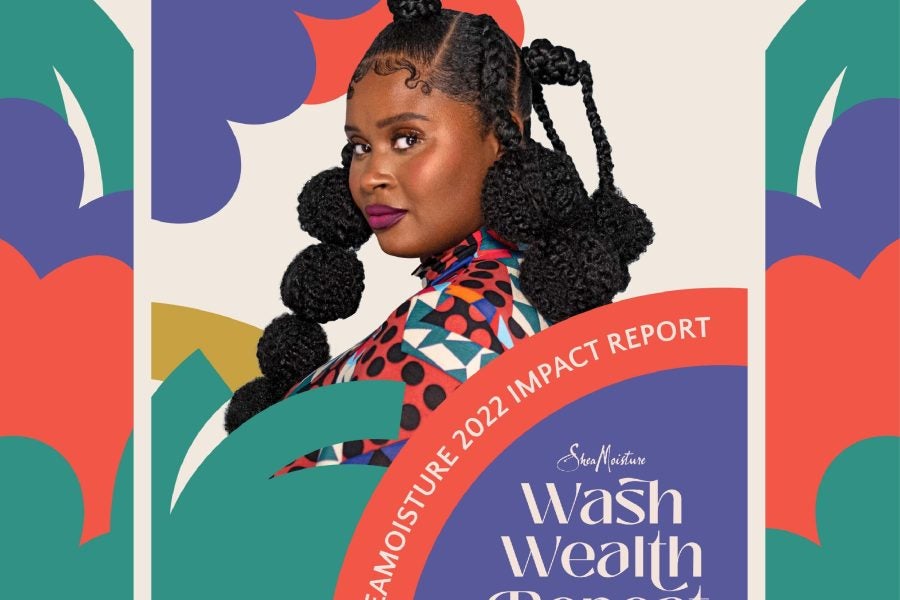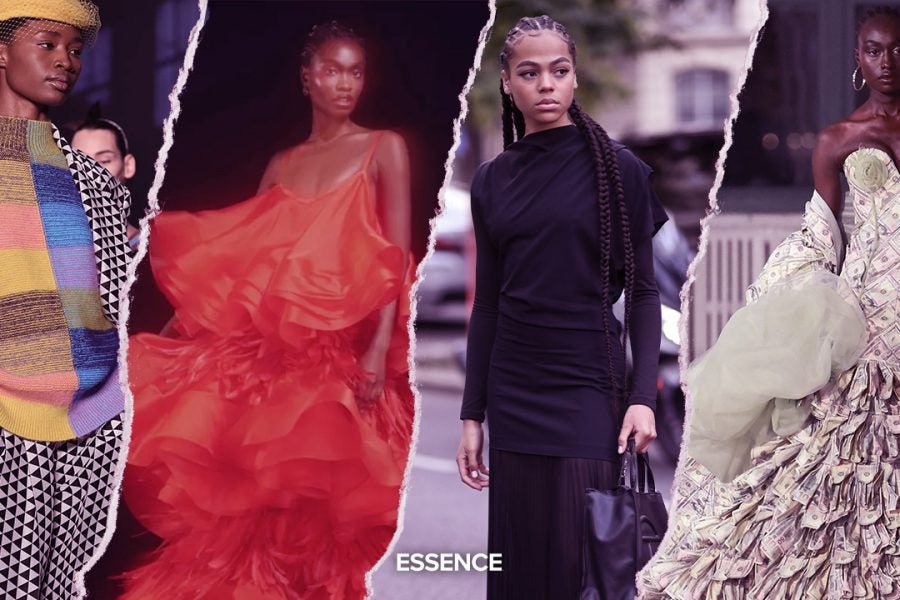
Howard Stern is “uncomfortable” with how Oprah Winfrey “flaunts” her fortune. On his radio show, the notorious shock jock commented, “Oprah’s not embarrassed by her wealth at all.” She “loves showing it off” on social media.
Stern, whose net worth is around $650 million, criticized the media mogul saying, “It’s f– king mind-blowing you when you follow her on Instagram. You see her estates, her gardens, the people who service her and, you know.” Howard is upset. Oprah, and her estimated $2.5 billion net worth, remain unbothered.
Stern is just the latest in a long line of public figures expressing disdain for how wealthy, powerful, and influential Black women appear in the world. Earlier this year, Ketanji Brown Jackson faced untempered and blatantly racist vitriol during her confirmation hearings as the nominee to become the first Black woman to serve as a United States Supreme Court justice. Likewise, former First Lady Michelle Obama has been the target of innumerable displays of fury since stepping on the global stage alongside her husband more than 15 years ago.
The visceral rage triggered by the existence of successful Black women is baffling. Not only do we see it in bold demonstrations, but we sense it in subtle and insidious ways. It shows up empirically in the way the media talks about influential Black women. So what is it about Black women’s power that some white men find so offensive?
To help unpack this question, I tapped Mckensie Mack, a research and change management expert in the organizational justice space and the chief purpose officer at change management firm MMG Earth.
A surge in “white men angst.”
The nation is at a critical impasse. The reality of globalism, shifting racial demographics and a twice-elected African-American commander-in-chief ignited a resurgence of overt racism among those seeking to maintain their historic rank at the pinnacle of the social order. This realization, experts say, is the impetus for the rise in white nationalism played out to its extreme in the January 6 insurrection.
The advances of powerful Black women, who have historically existed at the bottom rung of the social ladder, are an affront to the deepest sensibilities of the white male power structure. “Historically, white men have held all the social, judicial, institutional, and economic power in our society. Black women were at one time literally treated as property in the name of profit,” Mckensie said.
“It’s not enough that Black women make $1 million less than white men during their careers. It’s also not enough that Black women work 579 days to make what white men make in 365. We live in an age where an old way of thinking and being is crumbling right before our eyes. That evolution of thought into a way of living that is not centered or founded on oppression to exist and thrive is leading to a surge in white men angst,” they said. “These are men who are afraid of existing in a world where they are no longer heralded and praised just for existing – no matter how mediocre their work or contribution.”
Power differentials.
The power, wealth, and luxury of Black women, who have traditionally played subordinate societal roles to white men, represents a living, breathing threat to a social order that privileges white maleness over all others.
Mckensie said this historic power differential makes it difficult for some white men to process the idea of Black women’s success “if not owned by or existing in close proximity to white men.” “In our society, power is seen as a privilege that should only be afforded to cishet white men and select cishet white women who have white men’s “permission” to express autonomy and agency,” they said.
Discussions about the vast disparities of wealth between the rich and the poor in the US, Mckensie says, are valid and perhaps necessary. Still, they said, these critiques, when aimed solely at a minority of affluent Black women and not their wealthy white male counterparts, likely point to ulterior motives.
“Conversations about wealth and wealth disparity are critical to building just and anti-oppressive societies. However, they should be had with sincerity and thoughtfulness and should not be a veil for selective discomfort when wealth is in the hands of a Black woman,” they said.







